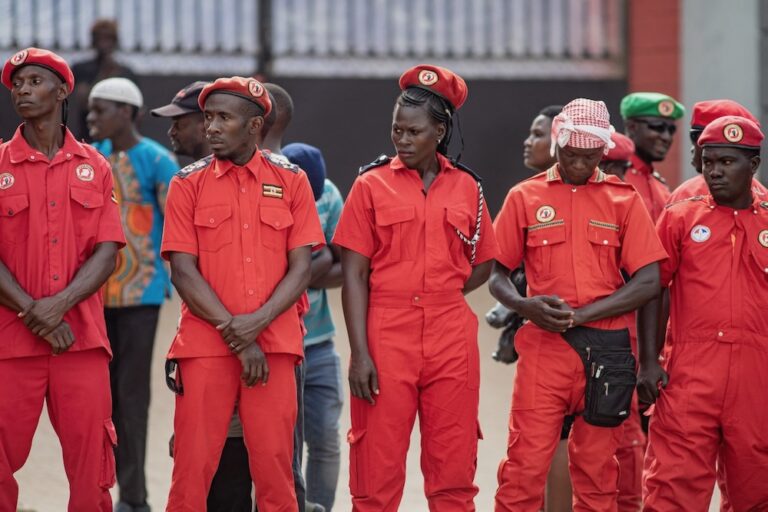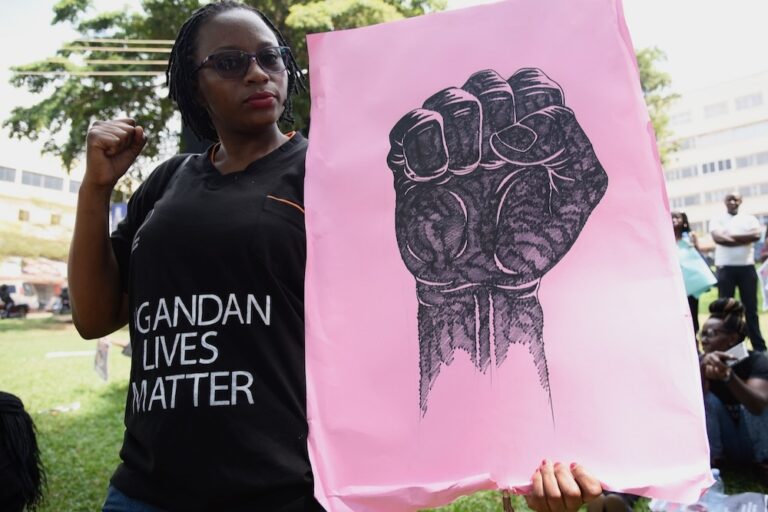The anniversary comes at a time when media freedom is facing attacks ranging from suffocating legislation, police harassment, murder and judicial sanctions.
(HRNJ-Uganda/IFEX) – It has been a full year since the historic day of darkness descended on to the media in Uganda, when the government arbitrarily closed down five media houses.
On 10 and 11 September 2009, the government switched off Ssuubi FM, Radio Two (locally known as Akaboozi), the Catholic-based Radio Sapientia, and the Buganda Kingdom’s 88.8 and 89.2 Central Broadcasting Services (CBS).
CBS remains closed to date, with over 120 of its staff members unemployed, while 18 other presenters have been fired from different media houses, namely the government-owned Uganda Broadcasting Service, Vision Voice, Radio Sapientia, Radio Simba, Radio One, Record TV, Radio Buddu, WBS TV, Radio Two and Ssuubi FM. Amongst those fired include Kalundi Robert Sserumaga, Anthony Kibuuka, Herbert Yawe Kabanda, Peter Kibazo, Charles Odongotho, Rose Namwogerere, Omulangira Ndaula Jjuuko, Aloysius Matovu, Irene Kisseka, Ben Mutebi, Andrew Benon Kibuuka and Kivumbi (a.k.a. Manyimatono).
Others who lost their jobs under duress are Chris Ssemakula, Basajja Mivule (though later reinstated with conditions), Kazibwe Bashir Mbaziira, Deo Walusimbi, Eddie Mukwaaba Katende and Mark Walungama. Although some media practitioners have secretly returned to their respective duties, it is only Sserumaga who has been charged with sedition; the charge was later nullified by the constitutional court.
A case that would have brought back a degree of normalcy by challenging the actions of the Broadcasting Council (BC) was filed more than six months ago by the aggrieved journalists, but it has not yielded results.
The BC has lost its moral purpose of overseeing and promoting the media’s work. It is now serving the interests of the state as a result of the delayed justice from the court, says HRNJ-Uganda.
An example is the case where BC chairmain Eng. Godfrey Mutabazi directed the privately-owned radio station Voice of Lango to suspend presenters Akena Patrick Ronex and Joe Orech for hosting Dr. Olara Otunnu, the president of Uganda People’s Congress, on 12 April 2010.
Another case was filed in a bid to reverse a broadcasting decision that banned the talk shows commonly known as “Ebimeeza”, but the bid has been stagnant and has since been referred to a constitutional court to interpret the law that was used to file the case. The case was brought to court under a “notice of motion”.
Eng. Mutabazi has used his office to acquire radio frequencies and licenses. He owns two radio stations, including Voice of Kamwenge. This makes it difficult for him to fulfill his statutory duties due to a conflict of interest.
Eng. Mutabazi has been biased in his work and he is not accountable to the membership (electronic media) but the state, said HRNJ-Uganda Programmes Coordinator Geoffrey Wokulira Ssebaggala.
He added, “No member of the Broadcasting Council knows how the money collected from the annual licenses is utilized. We have more than 150 electronic media houses operating in Uganda and each pays five million shillings (approx. US$2,200) annually. How does this money benefit the various stakeholders at the end of the day?”
This anniversary also comes at a time when media freedom in Uganda is facing many challenges, ranging from suffocating legislation, police harassment, murder, judicial sanctions, and public calls for attack led by politicians and members of the public against journalists with impunity.


